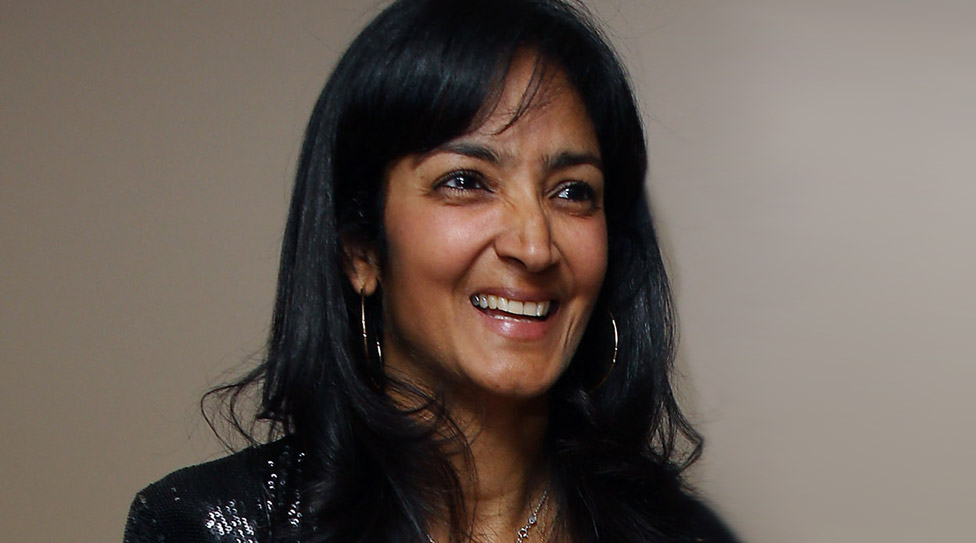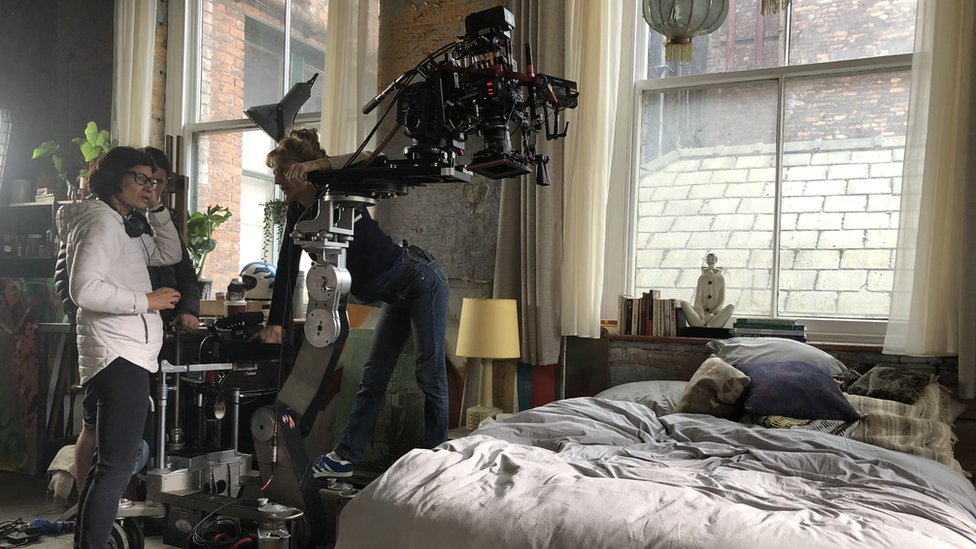

IN June 2020, an open letter was published calling on the UK’s film and TV industry to “tackle structural and systemic racism” in broadcasting and film-making.
Among the things the letter asked for was black and brown independent producers to be empowered and for the lack of diversity on productions to be constantly challenged.
Tinge Krishnan was among the 5,000 industry figures who signed up. “It really resonated with my feelings and emotions,” says the Bafta-winning film-maker, who has more than 20 years experience as a writer, director and producer.
Despite this, Krishnan says she has still seriously considered leaving the industry.
She says that while it’s easy for individuals to take a few seconds to sign their name to an aspirational document, it’s incredibly difficult for people to speak out about their negative experiences in film and TV because they fear retribution.
What helped to crystallise that realisation was what happened when she read some of the other names supporting the open letter.
“Suddenly I had this kind of gut-clench moment. A real moment of shock and nausea, rage and disappointment,” she says.
“Because I saw a company that had placed their stamp on this document that I knew for a fact from personal experience didn’t necessarily uphold those standards as enshrined in the letter. That was a shock for me. A real shock.”

Her experience related to an incident where she raised concerns about cultural sensitivity on a production. She was not the only person to speak up.
“When we brought these issues up, we were dismissed, our concerns were minimised. We were told by white people that it wasn’t racist,” she says.
“We were labelled as trouble-makers. The producers then rang my agents in a fury. And my agents, they were very supportive to me, but they became very fearful for my career.”
A British actor, known internationally for both TV and cinema, says they were aware of what happened but have asked not to be named. Speaking out and voicing concerns publicly, they say, is a huge and potentially damaging undertaking.
“Our industry is based on fear,” is the individual’s stark message.
“I’ve had such bad experiences with them with diversity. If I didn’t know what [this company] was actually like, I would think, good for them signing the letter. But it’s so very opportunistic.
“People or organisations who have been particularly insensitive [are] jumping on a bandwagon. It’s so easy for people to just put their name on a document.”
Krishnan concurs about the continuing risks of speaking out. “It’s an industry of freelancers and people [are] scared as to whether we’re going to be seen to be difficult to work with. People are scared for their careers, and it’s a valid fear.
“Even doing this interview, there have been award-winning producers who’ve asked me to really reflect on whether taking this risk in speaking out is worth the potential damage to my career.”
Krishnan says, on reflection, she believes it is. But the overall lack of progress in terms of diversity and representation has led her to think about leaving the TV and film industry completely.
“I feel for me that I’ve reached a point where I’m happy to walk away from the industry if it’s not a place where people can speak out,” she tells the BBC.
“I want to speak out and create a safe space for our children’s generation to work and grow and thrive and contribute.”

Others in the industry say an unintended consequence of the attention gathered by the letter over the summer was the creation of a false impression that significant progress is being made.
While Krishnan admires what its organisers are trying to achieve, she says it’s only part of what is really going on.
“I had the impulse to remove my name, and I didn’t in the end because for me I felt the letter was really important. The sentiments of the letter were really important, and I stand by the sentiments of that letter.
“When I explained to [the organisers] that people who don’t uphold the standards of the letter are on it as signatories, they said they couldn’t do anything about the people who’d signed the letter, but that we could remove our own names from it.
“I felt then like we were in a situation where people of colour who’d experienced racism were being asked to remove their letter in favour of, frankly, white people who’d perpetrated the very things we were fighting against.”
One producer whose work has won multiple major awards told the BBC the effect of the letter would always be limited without specific industry measures.
“The open letter felt like a truly missed opportunity,” they say. “It should have further coerced the film and TV industry into a true reckoning and conversation that led to true action.
“It is important we recognise a prior open letter had been released a few days before from the Black TV Collective. But then this one turned into a popularity contest in how many names it could garner.”
The producer speaks of feeling “the sheer horror of seeing names on there, from those who have held up the systemic racism in the industry through their active choices and outright racist views, which have affected many film-makers of colour past and present”.
It’s a sentiment shared, again anonymously, by a well-known TV actor who has appeared on some of the UK’s biggest shows and who claims to have also regularly experienced discriminatory behaviour on sets and productions.
“It’s fair to say some of the people involved only signed it because of public mood, fashion, whatever you want to call it,” says the actor. “We [minorities] signed it to express how we feel. We’re not some fashion.
“Everyone who’s white and signed the list should come forward [and] state what they’re going to do here. Let’s see some action, some plans, some budgets, some processes.”
Producer Nisha Parti, one of the organisers of the original letter, says she has had conversations with broadcasters over the summer and is hopeful about change. But she feels a longer timeframe – closer to a year – is realistic before the industry can expect to see some positive change.
She says she will be revisiting the broadcasters to discuss what changes have been made at that time, and that those who have chosen to sign the letter should expect to be held to account if they are considered not to have adhered to its sentiments.
For her part, Tinge Krishnan says she has to believe positive progress is possible.
“I don’t want to blame people, and I don’t want to shame them,” she says. “What we really need now is change and to create structures that that engage and deal with these issues constructively and ensure behavioural accountability for everyone.
“Everyone who has signed that letter has aligned themselves with the goals enshrined in that letter. So by signing it they’ve all willingly invited accountability as one of the first steps in the process of change.
“So yeah, I feel we should demand that accountability and to know what exactly they are going to do.” – bbc.com